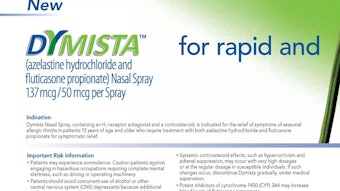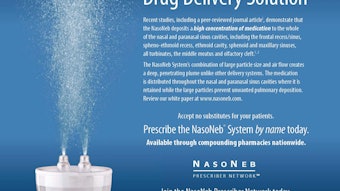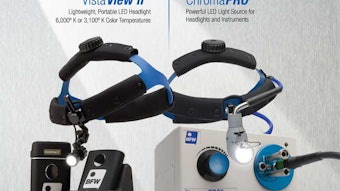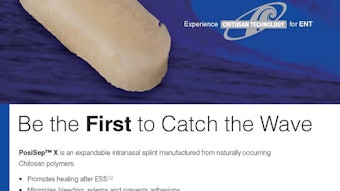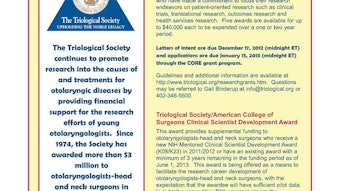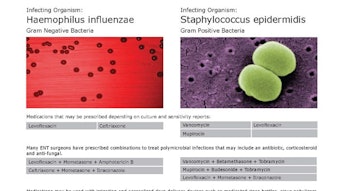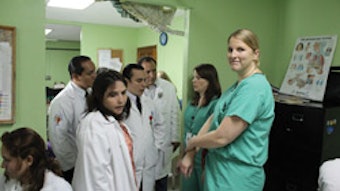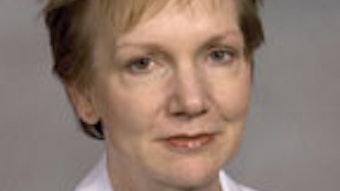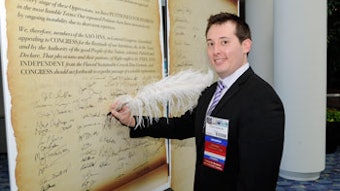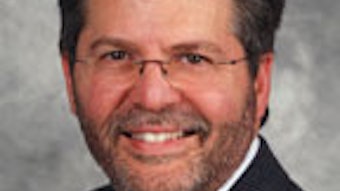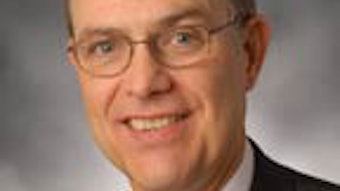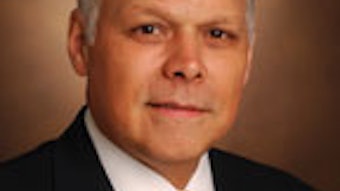Academy Committees Impact Payment Coverage for Otolaryngology
Richard W. Waguespack, MD Coordinator for Socioeconomic Affairs Michael Setzen, MD Coordinator for Practice Affairs, and Co-chairs of 3P The Physician Payment Policy (3P) Workgroup, co-chaired by Richard W. Waguespack, MD, and Michael Setzen, MD, is the senior advisory body to Academy leadership and staff on issues related to socioeconomic advocacy, regulatory activity, coding or reimbursement, and practice services or management. On behalf of the AAO-HNS and 3P, we would like to thank Academy committees for the work they have done in the past in response to requests for expert review and input on payer/insurer (i.e., United Healthcare, Wellpoint, Aetna, Medicare, Medicaid, etc.) payment policies. We anticipate a higher volume of requests for review of payer/insurer payment policies in the future. As you know, payers give the Academy limited time to provide comments on the payment policies, and as a result we will continue to need to draw on committee members’ expertise in reviewing these policies. Background on Need for Committee Input on Payment Policy Requests from Payers The Academy has excellent relationships with many payers and as they perform periodic review of payment policies related to specific otolaryngology-head and neck surgery services, they reach out to the Academy for input prior to publishing the finalized version. This often provides the Academy an excellent opportunity to proactively advocate for its members and our patients. While payers do not always accept our recommendations, we do well on balance. Membership sometimes alerts 3P about payer policies that are already implemented and are restrictive to the specialty. In these cases, in order to advocate on behalf of members for appropriate coverage and payment of services, committee input is needed to provide comments. Occasionally, Academy input is needed for issues not directly relating to payment, but other elements of health policy. Urgency and Importance of Payer Payment Policy Review The urgency of these requests to review the payer payment policies is determined by the payer’s time frame and the fact that the payers typically only review policies annually. Therefore, it is critical for the Academy committees to provide comments in a timely manner to ensure they are included in the payer’s policy meetings where decisions are made. The review of payer payment policies affects coverage and payment of services you provide to your patients. Process for Receiving Committee Input Currently, once a payer receives a request for review, the Health Policy staff sends it to 3P for review and they determine which committees have the expertise needed to review and provide comments on the policy. Health Policy staff then forwards to the committee chair, and copies the staff liaison, requesting the committee’s review. Committee input on payer payment policies is essential to ensuring that our clinical experts have the opportunity to provide their expertise and input to shape future payment policy for their services. Exemplary Committee Input Resulting in Positive Progress with Payer Payment Policy In a recent example, the Implantable Hearing Devices Committee (IHDC) has reviewed and provided comments on United Healthcare’s Policy for reimbursement of Implantable/Non-Implantable Hearing Aids and Bone Anchored Hearing Aids (BAHA) during the past four to five years. In 2010, the committee provided comments on UHC’s policy, arguing for expanded inclusion in UHC’s descriptions of various covered devices. After the committee’s 2012 review of the policy, it mostly concurred with UHC’s reimbursement policy for devices and clinical procedures associated with this policy. In addition, the IHDC determined United Healthcare has integrated many of the Academy’s past comments and has modified its policy integrating past Academy recommendations. As such, our members should have confidence that the Academy can amicably work with insurers to change reimbursement policies and achieve progress that will benefit membership as a whole. In some cases, it may take time to develop substantive peer-reviewed literature sources to support various procedures and devices, but every bit of support helps. The Academy would like to extend its sincere gratitude to Jeffery J. Kuhn, MD, chair of the IHDC, and all of the members of the committee who diligently worked on this effort, which resulted in positive change for all Academy members providing these services to patients. For more information on recent changes to private payer payment policies, visit http://www.entnet.org/Practice/News-and-Updates-from-Private-Payers.cfm.
Richard W. Waguespack, MD
Coordinator for Socioeconomic Affairs
Michael Setzen, MD
Coordinator for Practice Affairs, and Co-chairs of 3P
The Physician Payment Policy (3P) Workgroup, co-chaired by Richard W. Waguespack, MD, and Michael Setzen, MD, is the senior advisory body to Academy leadership and staff on issues related to socioeconomic advocacy, regulatory activity, coding or reimbursement, and practice services or management.
On behalf of the AAO-HNS and 3P, we would like to thank Academy committees for the work they have done in the past in response to requests for expert review and input on payer/insurer (i.e., United Healthcare, Wellpoint, Aetna, Medicare, Medicaid, etc.) payment policies. We anticipate a higher volume of requests for review of payer/insurer payment policies in the future.
As you know, payers give the Academy limited time to provide comments on the payment policies, and as a result we will continue to need to draw on committee members’ expertise in reviewing these policies.
Background on Need for Committee Input on Payment Policy Requests from Payers
The Academy has excellent relationships with many payers and as they perform periodic review of payment policies related to specific otolaryngology-head and neck surgery services, they reach out to the Academy for input prior to publishing the finalized version. This often provides the Academy an excellent opportunity to proactively advocate for its members and our patients. While payers do not always accept our recommendations, we do well on balance. Membership sometimes alerts 3P about payer policies that are already implemented and are restrictive to the specialty. In these cases, in order to advocate on behalf of members for appropriate coverage and payment of services, committee input is needed to provide comments. Occasionally, Academy input is needed for issues not directly relating to payment, but other elements of health policy.
Urgency and Importance of Payer Payment Policy Review
The urgency of these requests to review the payer payment policies is determined by the payer’s time frame and the fact that the payers typically only review policies annually. Therefore, it is critical for the Academy committees to provide comments in a timely manner to ensure they are included in the payer’s policy meetings where decisions are made. The review of payer payment policies affects coverage and payment of services you provide to your patients.
Process for Receiving Committee Input
Currently, once a payer receives a request for review, the Health Policy staff sends it to 3P for review and they determine which committees have the expertise needed to review and provide comments on the policy. Health Policy staff then forwards to the committee chair, and copies the staff liaison, requesting the committee’s review. Committee input on payer payment policies is essential to ensuring that our clinical experts have the opportunity to provide their expertise and input to shape future payment policy for their services.
Exemplary Committee Input Resulting in Positive Progress with Payer Payment Policy
In a recent example, the Implantable Hearing Devices Committee (IHDC) has reviewed and provided comments on United Healthcare’s Policy for reimbursement of Implantable/Non-Implantable Hearing Aids and Bone Anchored Hearing Aids (BAHA) during the past four to five years. In 2010, the committee provided comments on UHC’s policy, arguing for expanded inclusion in UHC’s descriptions of various covered devices. After the committee’s 2012 review of the policy, it mostly concurred with UHC’s reimbursement policy for devices and clinical procedures associated with this policy. In addition, the IHDC determined United Healthcare has integrated many of the Academy’s past comments and has modified its policy integrating past Academy recommendations. As such, our members should have confidence that the Academy can amicably work with insurers to change reimbursement policies and achieve progress that will benefit membership as a whole. In some cases, it may take time to develop substantive peer-reviewed literature sources to support various procedures and devices, but every bit of support helps. The Academy would like to extend its sincere gratitude to Jeffery J. Kuhn, MD, chair of the IHDC, and all of the members of the committee who diligently worked on this effort, which resulted in positive change for all Academy members providing these services to patients.
For more information on recent changes to private payer payment policies, visit http://www.entnet.org/Practice/News-and-Updates-from-Private-Payers.cfm.
